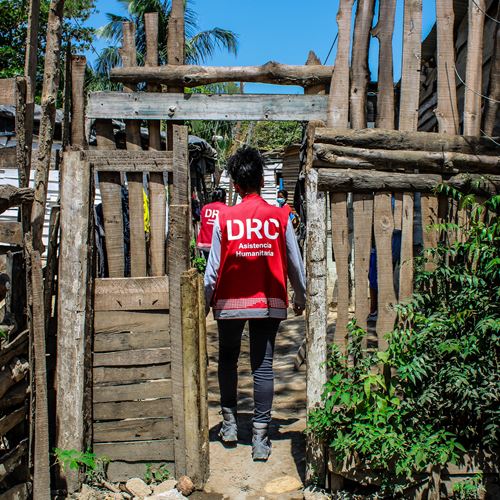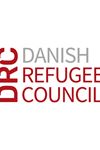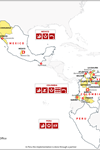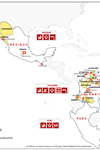
Colombia
DRC established its operational presence in Colombia in 2011 with a focus on Humanitarian Mine Action (HMA) and providing support to conflict-affected populations in the south of the country.

Displacement trends
Source: | DRC Foresight
Displacement Trends
Definitions
EDPs: Refugees under UNHCR’s mandate
IDPs: Internally displaced persons
Asylum seekers: People whose claims for refugee status have not yet been determined
Stateless: People not considered as nationals by any State
HST: People living in Host Communities
OIP: Others in need of International Protection
OOC: Others of Concern
Forecast
DRC forecasts are based on a machine learning tool that has been developed to predict forced displacement (IDPs, refugees and asylum seekers) at the national level 1-3 years into the future.
Why we are there
Internally Displaced Persons
According to Colombian authorities, out of Colombia’s 48.2 million population, more than 8.2 million people are IDPs.
Humanitarian crises continue in large parts of Colombian territory due to multiple factors, including increasingly complex and unpredictable conflict and armed violence dynamics, the presence and territorial control of non-state armed groups in large areas of the country, natural disasters and mixed migration flows that generate or exacerbate humanitarian needs in various communities, especially those located in areas most affected by the conflict, with little to no state presence.
Mixed Migration Flows
Refugees and migrants face obstacles to access public services, earn livelihoods and meet their basic needs, all of which are aggravated by a lack of documentation and consequent irregularity.
The official reopening of borders with Venezuela in August 2022 and the transition to a recovery phase from the global COVID-19 pandemic has allowed for an increase in regular arrivals from Venezuela and other countries, and has also been accompanied by an observed increase in pendular movements.
As the Temporary Protection Scheme closed in May 2022, there are now limited options for refugees to access international protection in the country, both for new arrivals and people who couldn't access it when they arrived.
At the same time, those who have regularized their status still often struggle to access services due to a combination of lack of information, lack of institutional response and xenophobia.
What we do
DRC has worked in Colombia since 2011. In 2018, DRC began providing humanitarian assistance to refugees, migrants, and host communities in urban and rural areas of Bogota D.C., Cundinamarca, Atlantico, Antioquia and La Guajira in the form of protection and multipurpose cash assistance (MPCA) at scale to respond to the onset of large mixed migration flows from Venezuela.
In 2021, DRC started providing lifesaving assistance to conflict-affected populations through protection, humanitarian mine action, emergency preparedness, and response interventions to address the needs of internally displaced persons (IDPs) in hard-to-reach, border and conflict-affected areas of Nariño, Norte de Santander, Caquetá and Bolívar.
Nowadays, DRC continues to deliver life-saving assistance to refugees, migrants, IDPs and host communities through integrated humanitarian response focused on the overlapping needs of the most vulnerable individuals and communities affected by conflict and displacement in Colombia.
At the same time, DRC adapts to the shifting needs of people of concern by scaling-up its economic recovery programming and supporting affected communities with entrepreneurship and employability programmes as a complement to its ongoing MPCA intervention, and strengthening its community-based approach to both continue to address immediate protection needs and to strengthen the resilience of local structures and leadership.
DRC currently provides a holistic response based on the centrality of protection, focusing on the most vulnerable and hard-to-reach, with particular emphasis on individuals and communities where the effects of displacement and conflict intersect.
DRC supports people of concern with protection (protection monitoring, individual protection assistance, gender-based violence prevention, community-based protection, legal assistance, Multi-Purpose Cash Assistance (MPCA) and cash for rent), Humanitarian Mine Action (risk education, survey and clearance), food and Non-Food Item (NFI) distributions, livelihood interventions, and small-scale community-centered WASH and infrastructure projects.
DRC provides an area-based approach that allows for an integrated and tailored response, addressing both individual and community needs, through direct assistance and community-based interventions.
Working in collaboration with


The Swedish International Development Cooperation Agency

United States Agency for International Development

US Department of State
Contact

Yann
Faivre
Executive Director West & North Africa and Latin America

Irene
Cabrera Roda
Country Director
Yann
Cornic
Operations Director for Latin America



